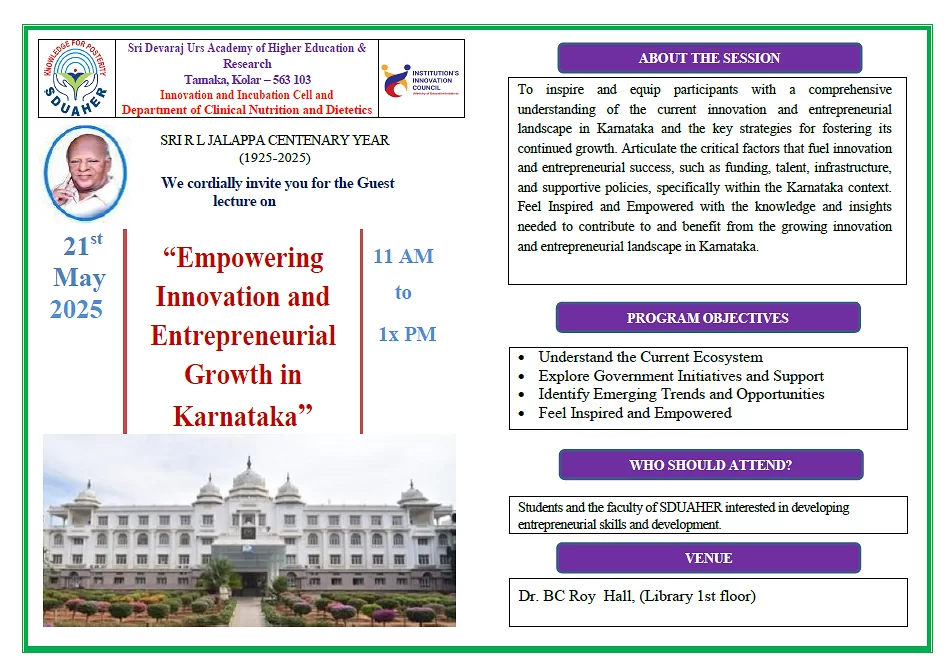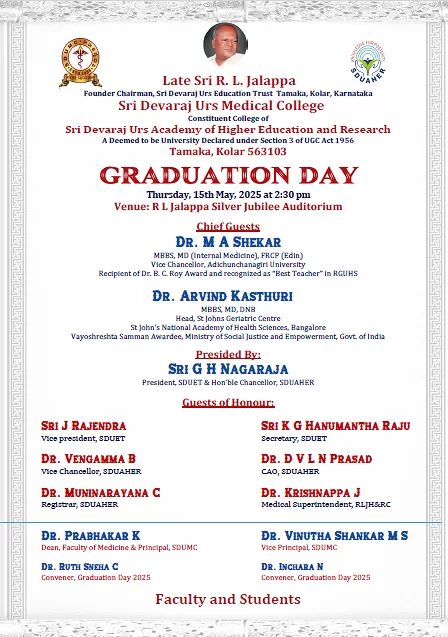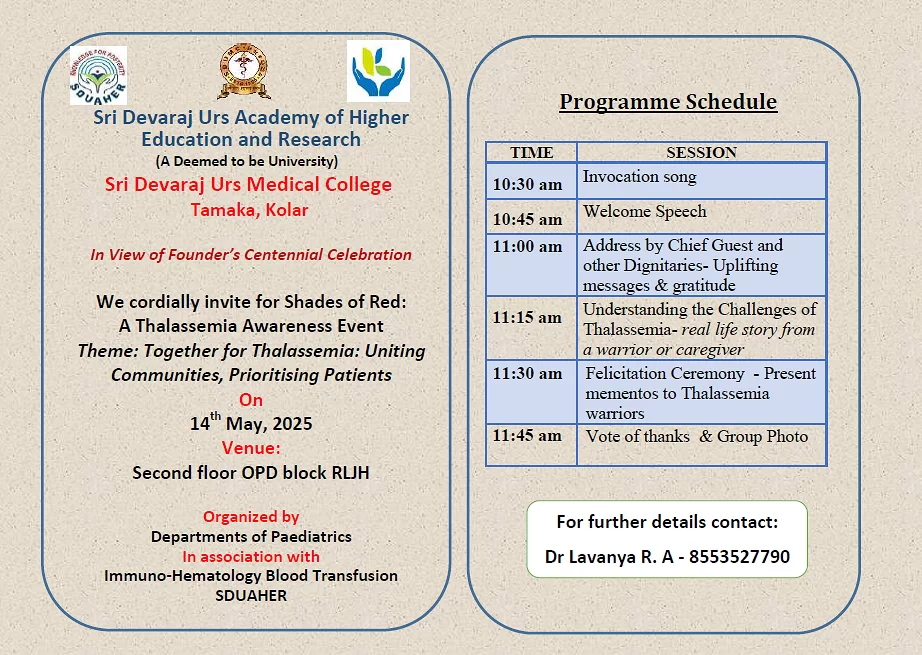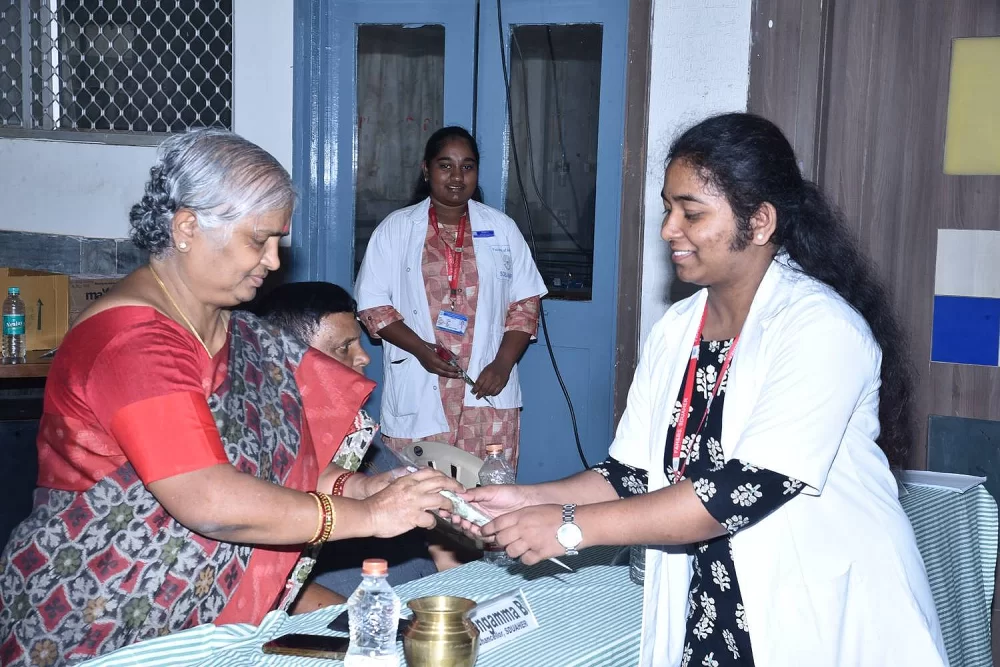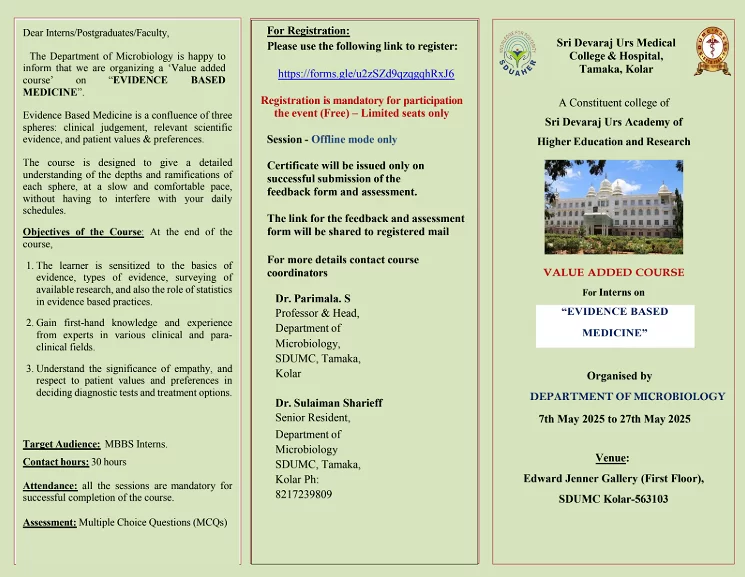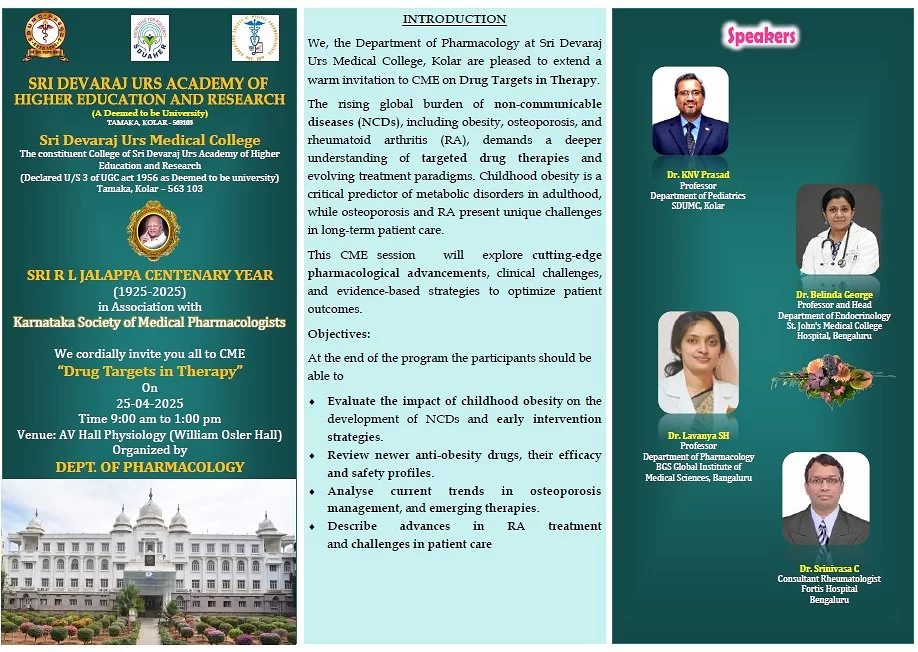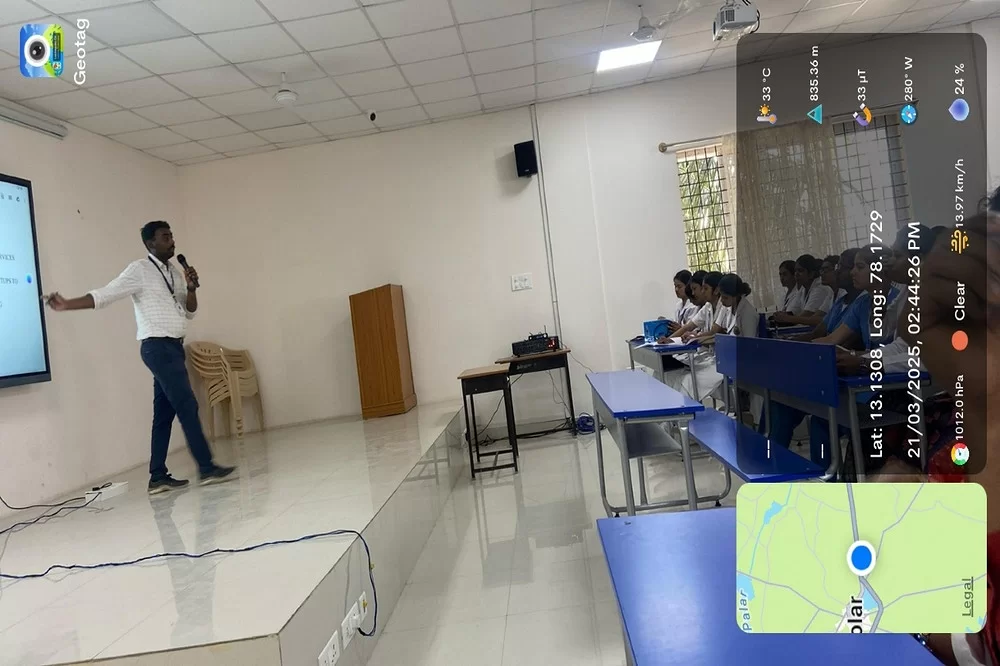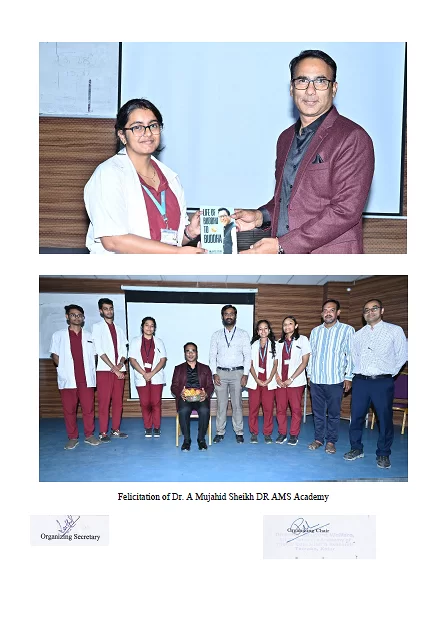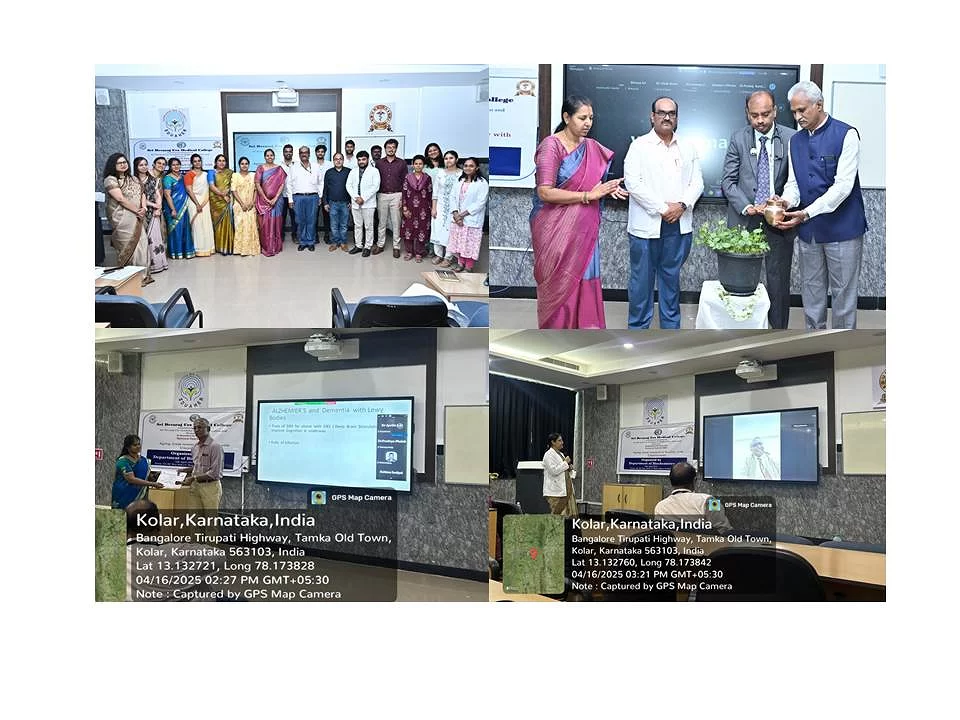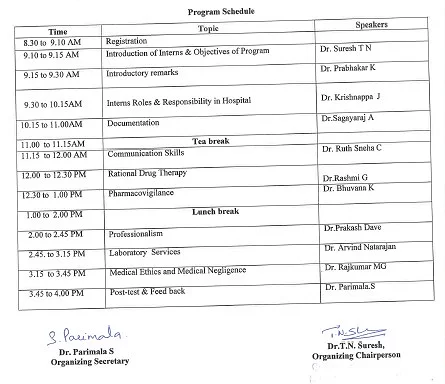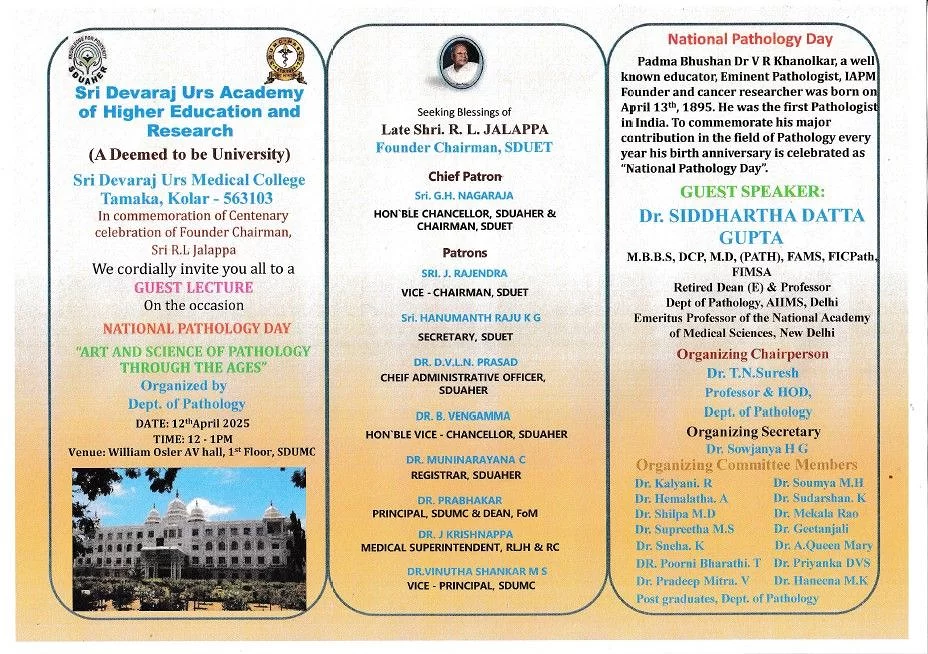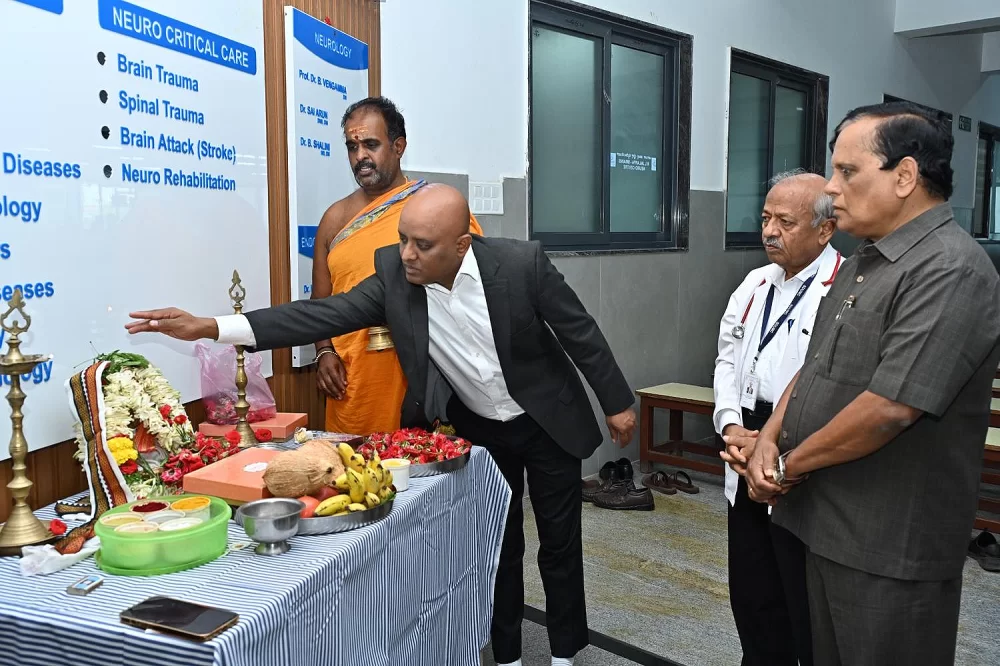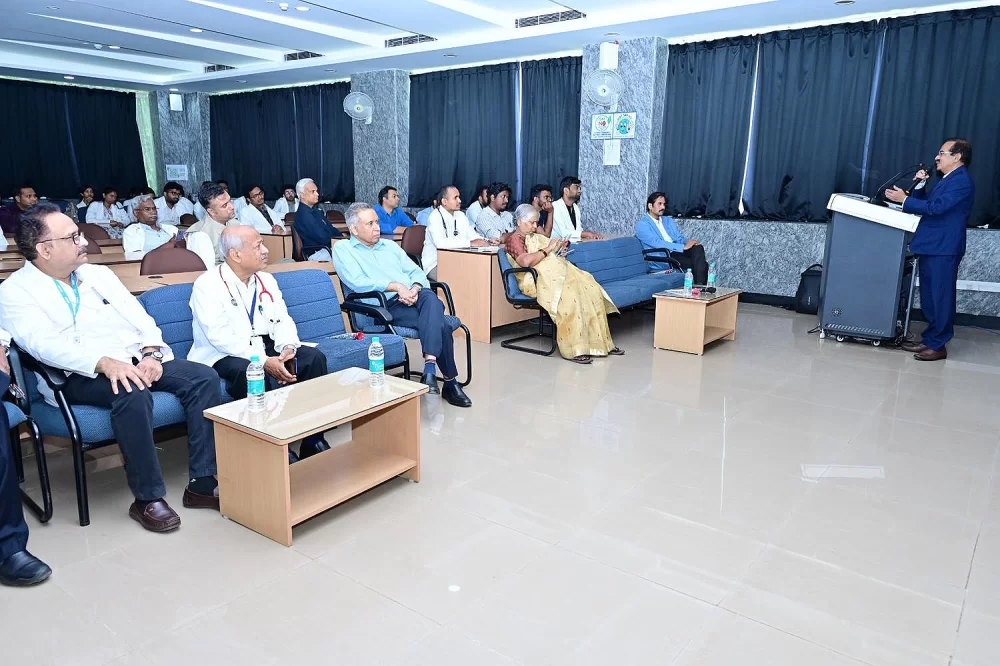Webinar | Year - 2023 24 | 07 Aug, 2023
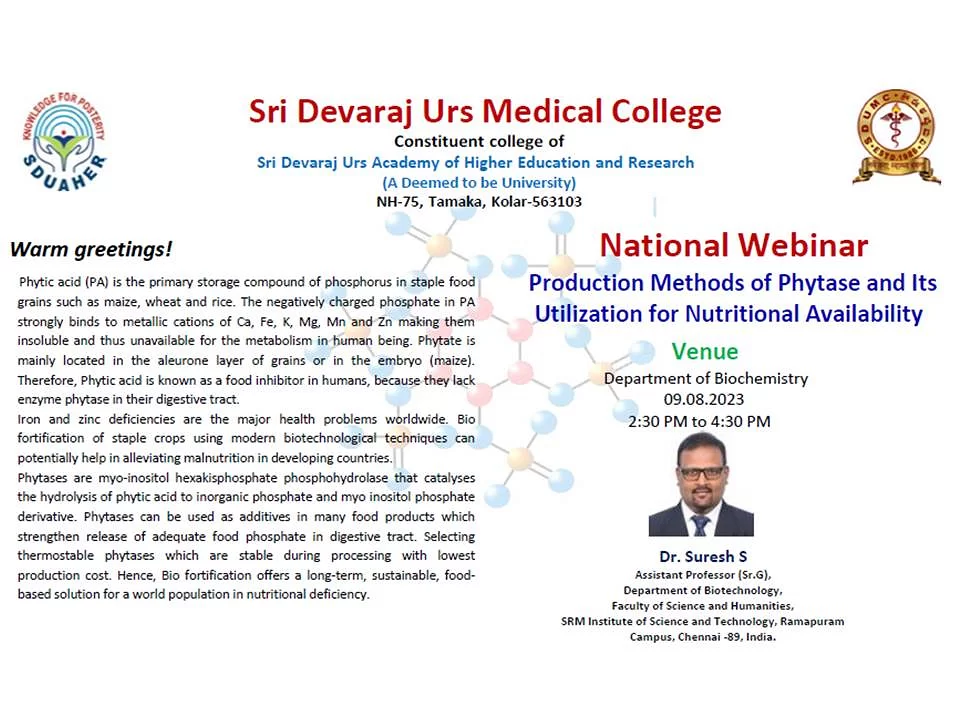
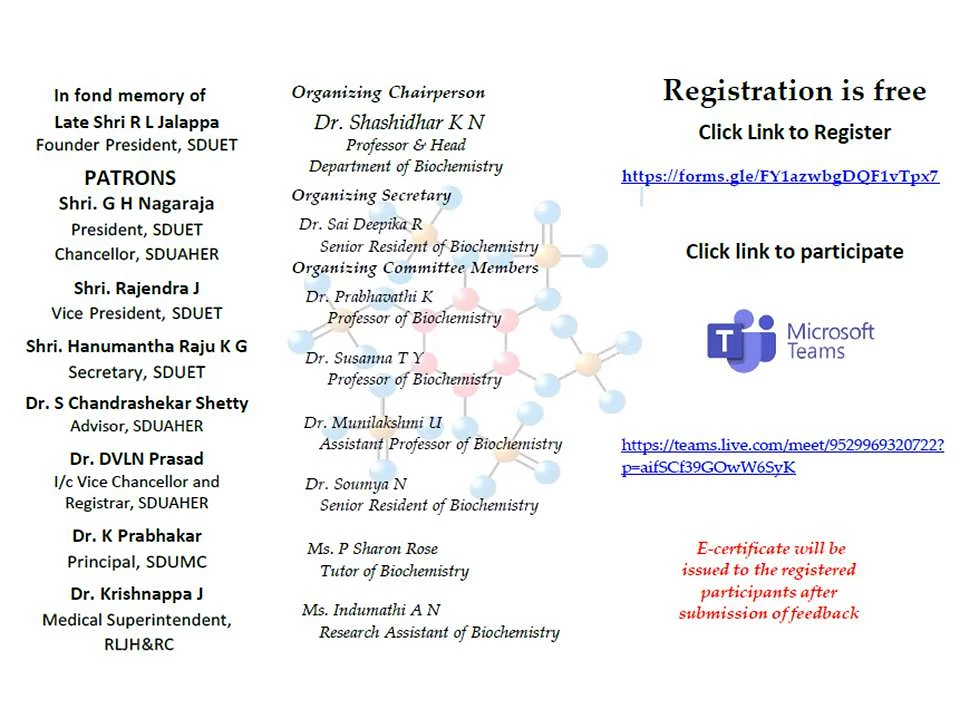
The department of Biochemistry, SDUMC is organizing a National Webinar on "Production methods of Phytase and its utilization for nutritional availability" on 9th August 2023.
Phytic acid (PA) is the primary storage compound of phosphorus in staple food grains such as maize, wheat and rice. The negatively charged phosphate in PA strongly binds to metallic cations of Ca, Fe, K, Mg, Mn and Zn making them insoluble and thus unavailable for the metabolism in human being. Phytate is mainly located in the aleurone layer of grains or in the embryo (maize).
Therefore, Phytic acid is known as a food inhibitor in humans, because they lack enzyme phytase in their digestive tract.
Iron and zinc deficiencies are the major health problems worldwide. Bio fortification of staple crops using modern biotechnological techniques can potentially help in alleviating malnutrition in developing countries.
Phytases are myo-inositol hexakisphosphate phosphohydrolase that catalyses the hydrolysis of phytic acid to inorganic phosphate and myo inositol phosphate derivative. Phytases can be used as additives in many food products which strengthen release of adequate food phosphate in digestive tract.
Selecting thermostable phytases which are stable during processing with lowest production cost. Hence, Bio fortification offers a long-term, sustainable, foodbased solution for a world population in nutritional deficiency.

